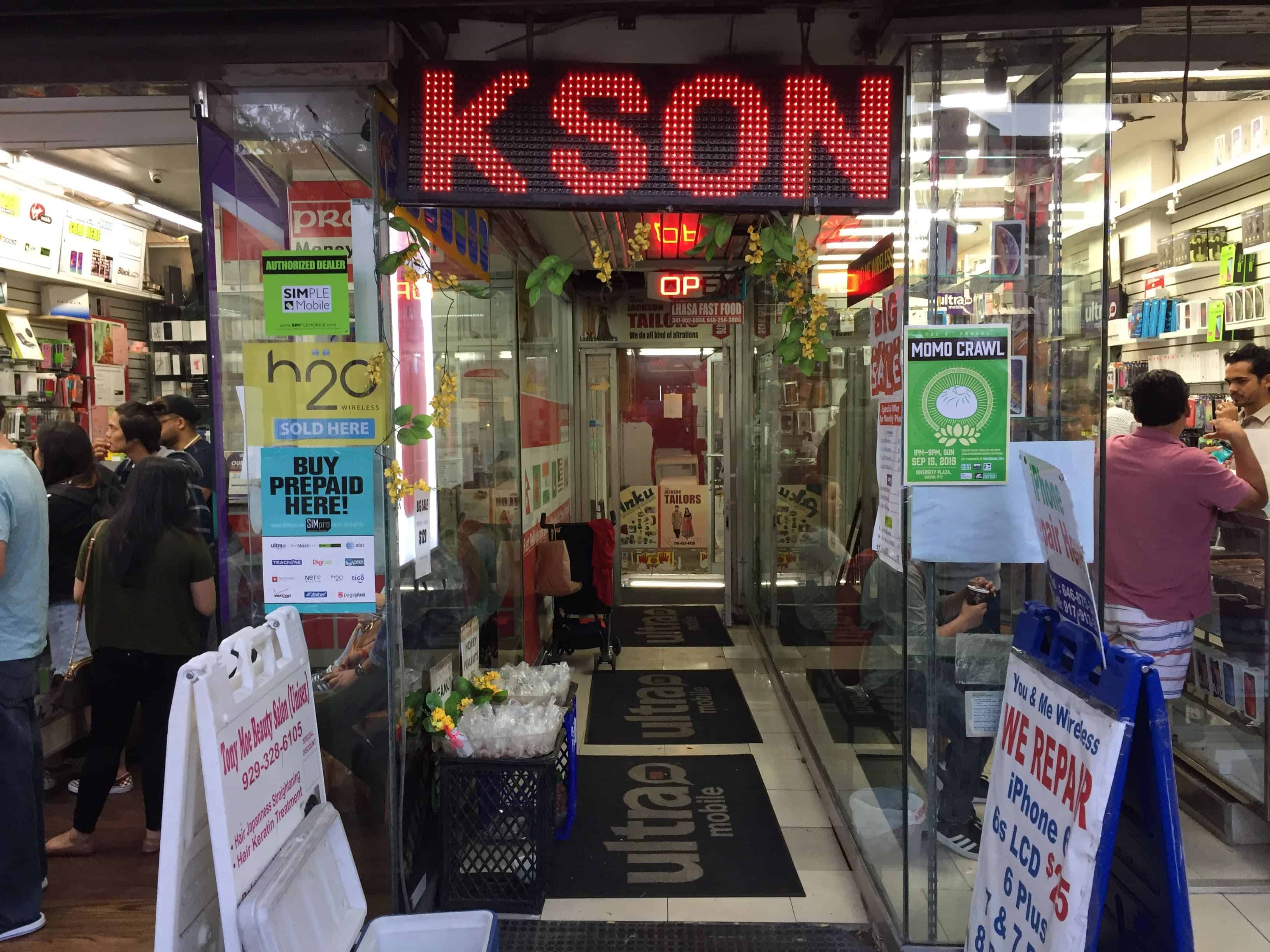In Jackson Heights, Lhasa Fast Food is famous, but for the unfamiliar, the most useful restaurant review is probably still a set of directions. It’s not hard to get to, situated about a block from the Roosevelt Avenue subway station (which fields the 7, E, F, M, and R trains) in a section of Queens that only looks distant on a map – it’s actually a 15-minute ride from Rockefeller Center, for instance – but because Lhasa isn’t visible from the street, it’s easy to miss.
At 37-50 74th Street, across from Rahul’s Couture, there’s a storefront with mixed signage (look for the scrolling red-text scoreboard above the entrance) that contains an internal mini-mall with a cell phone store (Tibetan Mobile), a beauty salon, and a tailor in the basement. Turn right at the entryway, go past the cell phone store, and in back you’ll find perhaps the best-known of several eateries in Jackson Heights specializing in momos, a type of steamed dumplings popular in Nepal, India, and Tibet.
About 25 local establishments participate in the neighborhood’s annual Momo Crawl, including Lhasa Fast Food, which, despite its name and its tucked-away location, is a proper restaurant with seating and table service, not a cart or counter (let alone a drive-thru). A large portrait of the Dalai Lama, perched high on a wooden beam, presides over happy diners in the small, windowless space.
The menu has 20 items, costing between $4 and $7 each. In most cases, the full list of ingredients – sometimes as few as three – appear on the wall, attesting to the food’s unembellished traditionalism. With my girlfriend, I ate the beef momo, the chive momo, the thenthuk (a beef soup featuring wide noodles ripped into bite-sized pieces), and the yellow laphing (slabs of gluten soaking in chili oil and soy sauce).
I had hoped for a more powerful broth from the thenthuk, but the steady bloom of spiciness in the laphing – a strikingly simple dish, the preparation of the distinctive noodles surely involved some labor – left its mark on me. The main event was the beautifully wrapped momos, which come eight to an order.
The beef inside the momos is tasty but tough. I’d recommend traveling to Lhasa Fast Food specifically for the chive momos, which burst with vernal greenery – and, if you’ve never had it, for the “butter tea” (undrinkable, to me, in its oily richness, but a worthy experience and a Tibetan staple). I’m not sure the chives really are chives, though; based on their width, I – no expert – would label them scallions.
The tricky part is making a perfectly mixed dipping sauce from the black vinegar, chili sauce, chili oil, and soy sauce on the table. And the other tricky part is finding the bathroom. It’s not inside Lhasa but on the exact opposite side of the retail arcade, if you imagine the building’s south wing (with the bathroom at the end) as a mirror image of the north, which concludes at the restaurant. In other words, go back to the main entrance and follow the other hallway past the beauty salon to a door that looks like an exit to an alleyway and turn left to find the restroom. The hand soap is above the toilet.









